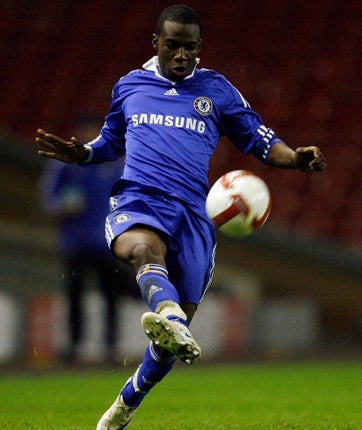How Chelsea tried to exploit legal loophole
Under English law the Premier League club could ignore Kakuta's deal with Lens

Chelsea's "crime" in the Gaël Kakuta case was nothing to do with age, per se, and everything to do with pinching a player under contract to another club. Kakuta was Lens's player until 2007. He had a contract, which he and his parents had freely signed, but he walked out on it when Chelsea made him a better offer.
Fifa's Dispute Resolution Chamber made it clear on Thursday that a contractual breach was core to the case when it announced a fine of €780,000 jointly for Kakuta and Chelsea, compensation of €130,000 to Lens, and the two-window transfer ban to Chelsea.
These punishments were meted out "in accordance with article 17, paragraphs 3 and 4 of Fifa's Regulations on the Status and Transfer of Players". The most relevant passage clearly states: "It shall be presumed, unless established to the contrary, that any club signing a professional who has terminated his contract without just cause has induced that professional to commit a breach. The club shall be banned from registering any new players, either nationally or internationally, for two registration periods."
It has been there in black and white for years. Chelsea knew the score. They were warned they were in danger of punishment. They would not have been reported to Fifa if they had agreed compensation with Lens. But they didn't, and will probably pay a bigger price.
The issue of age is relevant only in terms of how old a player needs to be to sign a legally-binding contract in any given country, and the technicalities involved in when an agreement becomes an agreement, legally speaking.
In France, players can sign professional contracts at 16, in England the age is 17, in Spain and Italy it is 18. The older limit in Spain and Italy is the reason that English clubs – Arsenal and Manchester United notably – have been able to sign good young players as pros under rival Italian and Spanish noses.
What queers the pitch in France is that a player can sign a 'contract aspirant' before the age of 16; in effect, an agreement to agree to a professional contract later. "An agreement to agree is unenforceable in law in the UK," says Adam Morallee, a partner at the law firm Mishcon de Reya. "It is enforceable in France, however, and we can assume that has been accepted by Fifa because of the ruling."
The Court of Arbitration for Sport is based in Switzerland, like Fifa, and unlikely to overturn that point of law, although Chelsea could see it as an area to attack on appeal; what is and isn't "professional".
Even if Chelsea fail in their appeal, the case will not stop clubs scouting far and wide. The "big four" each have a handful of staff scouts overseas – Manchester United have staff men in Brazil, Italy, France and Portugal for example – and informal networks of dozens.
In future, clubs should simply be more careful about who they poach, or be more willing to negotiate decent compensation.
Join our commenting forum
Join thought-provoking conversations, follow other Independent readers and see their replies
Comments
Bookmark popover
Removed from bookmarks